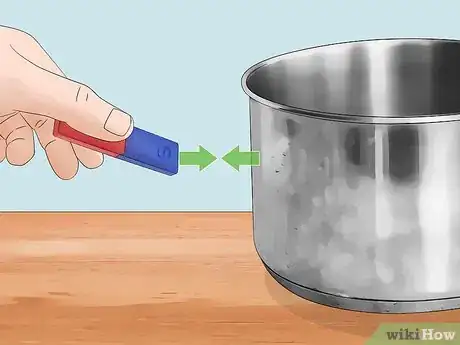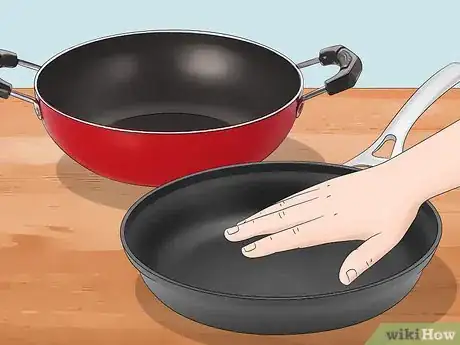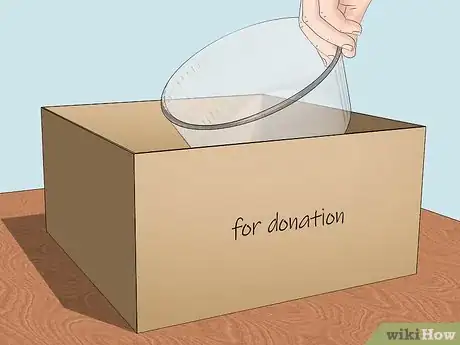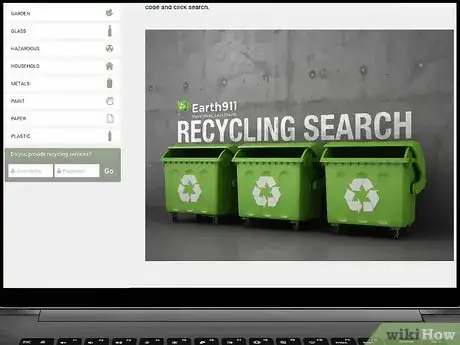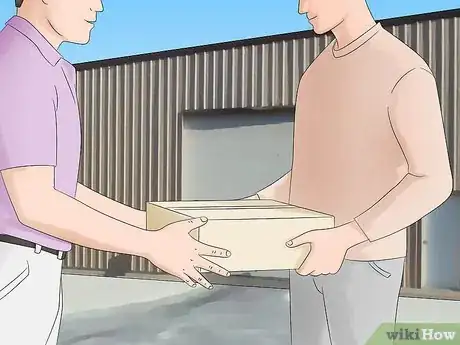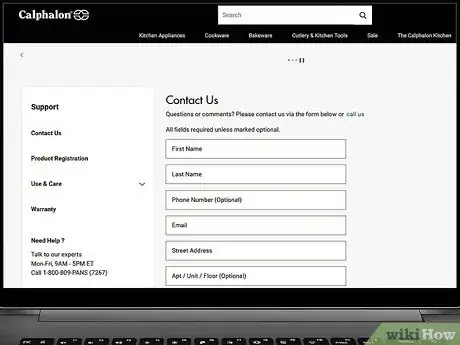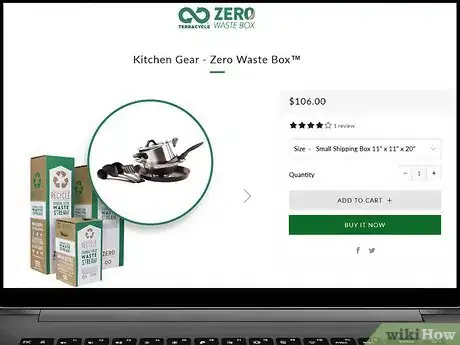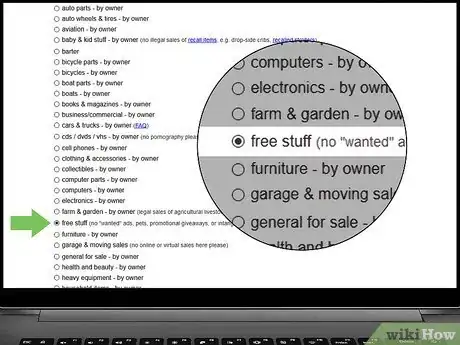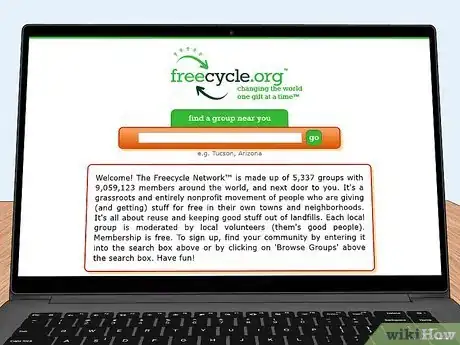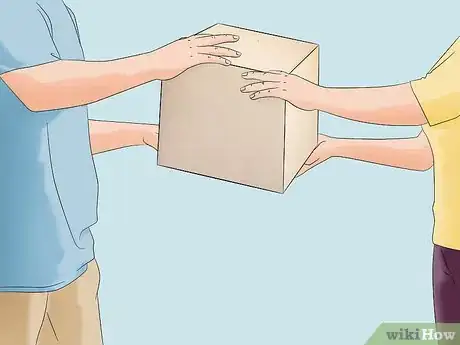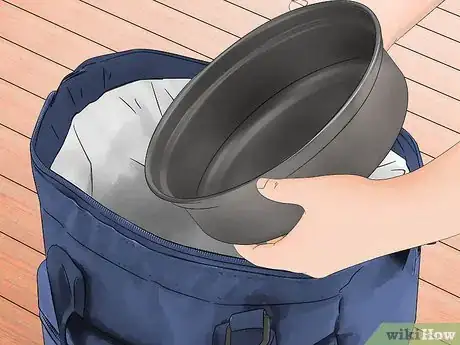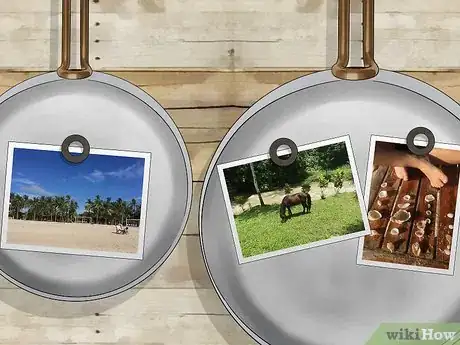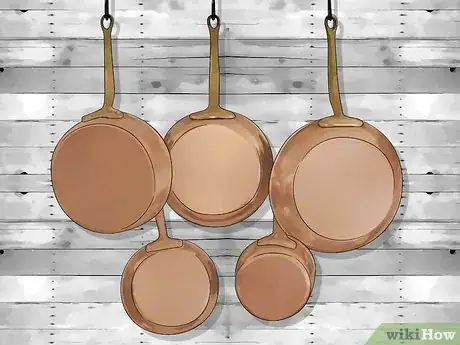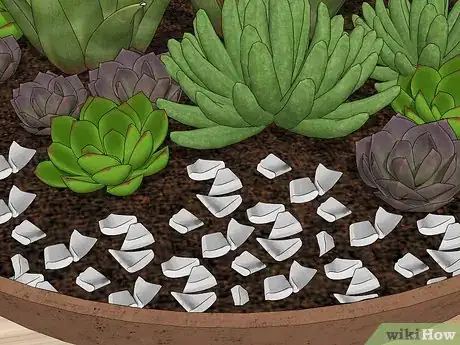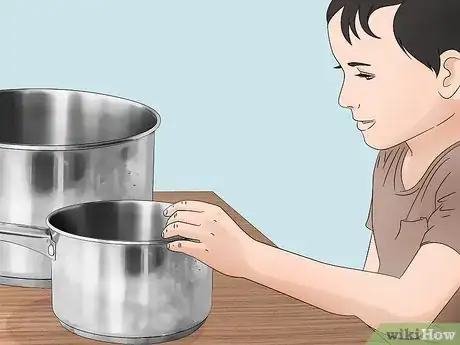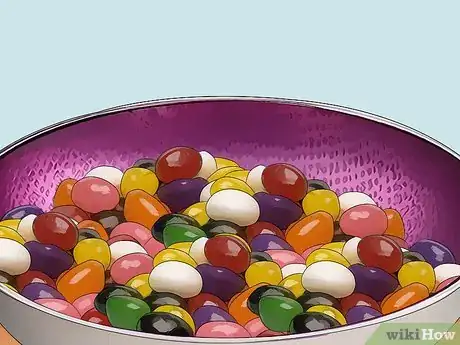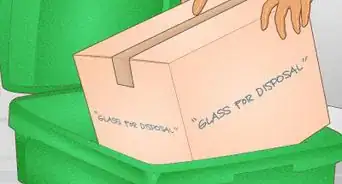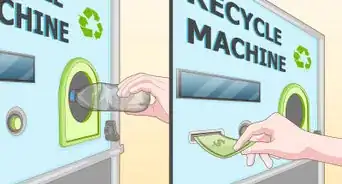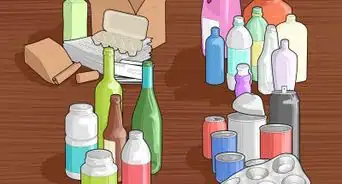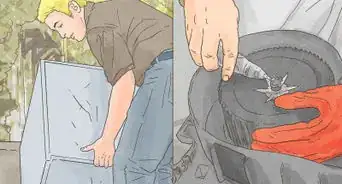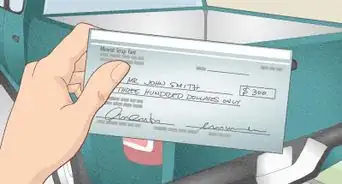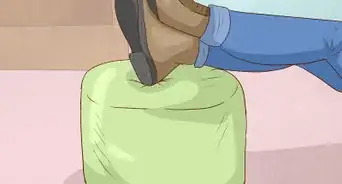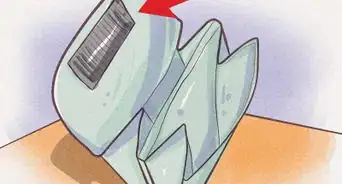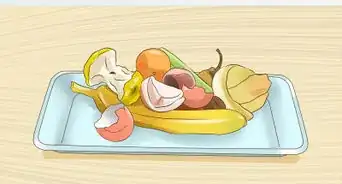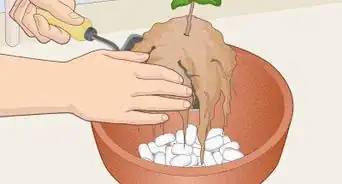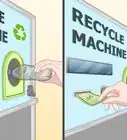This article was co-authored by wikiHow staff writer, Janice Tieperman. Janice is a professional and creative writer who has worked at wikiHow since 2019. With both a B.A. and M.A. in English from East Stroudsburg University, she has a passion for writing a wide variety of content for anyone and everyone. In her free time, you can find her working on a new crochet pattern, listening to true crime podcasts, or tackling a new creative writing project.
There are 10 references cited in this article, which can be found at the bottom of the page.
This article has been viewed 14,913 times.
Learn more...
Your old cookware can take a beating over the years, especially if you use it often. If your old pots and pans are looking a bit worse for wear, you don’t have to throw them out—there are plenty of ways you can recycle or repurpose your cookware without tossing them in the trash. If you’re looking to recycle your pots and pans, take a moment to figure out what they’re made of before dropping them at the curb. If all else fails, you can always give your old cookware to someone in need, or transform it into something else altogether!
Steps
Recycling Program Options
-
1Use a magnet to see if metal pots/pans are ferrous or nonferrous. Grab a spare magnet from your refrigerator and stick it to the side of your metal pots or pans. If the magnet sticks, then your cookware is made with ferrous metals, like iron. If the magnet slides off, your cookware is made with a different kind of metal, like copper, aluminum, stainless steel or something else.[1]
- Some recycling programs only accept ferrous or nonferrous pots and pans, so it’s handy to figure that out and separate the pots/pans by metal type.
-
2Check pots/pans for a nonstick coating and put those in a separate pile. Search for a thin coating along the inside of your pot or pan—chances are, this layer may be chipping or flaking if your cookware isn’t in great condition. Some recycling programs won’t accept pots/pans with nonstick coatings, so separate these from the metal cookware and be sure to confirm that the recycling program accepts them.
- Certain companies, like Teflon, are well-known for their nonstick cookware.
Advertisement -
3Put aside non-metal cookware to donate rather than recycle it. Cookware without metal components, like ceramic bowls and Pyrex baking plates, can't be recycled with metal pots/pans. You also can't put these items with normal glass recyclables because they don't melt at the same temperature and contain contaminants. Most recycling programs won't accept these items, so plan to donate or give them away.[2]
- If your glassware is broken, place the shards in a sealed, labeled box and toss it in the trash bin.
-
4Review local recycling programs on your local government website. Run a search for local recycling options and check the program's requirements for acceptable materials. Unfortunately, are aren't standard rules about this, so be sure to cross-check specific materials with your local recycling program.[3]
- Check if your region has a curbside recycling program, which makes things a lot easier. Then, sort pots/pans according to the program's requirements so they can be picked up.
- If your area doesn't have curbside recycling, look for local recycling facilities that accept drop-offs. Drop off the pots/pans that meet their requirements at the facility according to the facility's instructions.
- Search for different recycling options here: https://search.earth911.com/?utm_source=earth911-header.
-
5Give metal cookware to a scrap metal yard if you don't have a program. Stop by your community’s scrap metal yard and let the staff or volunteers know what types of metal cookware you have with you. Typically, scrap yards will accept a lot of different metal cookware. You might even get a little bit of money in return!
- The iScrap app can help you find your nearest scrap yard.
-
6Contact the cookware brand to see if they have a recycling program. Look for a brand or brand insignia somewhere on your pot or pan. If it comes from a more well-known brand, like Calphalon, you might be able to send it back to the original company. Check the brand’s website for more instructions on how to mail back your pots and pans.[4]
-
7Use Terracycle if you don't have any local recycling options. Check out Terracycle’s website and purchase a Zero Waste Box, which will be delivered to your doorstep. Place all of your old cookware in this box, then send it back to Terracycle. They’ll be able to make sure all of your old odds and ends go to a good use![5]
- These boxes are a bit pricey—however, the price includes a prepaid shipping label.
- You can check out Terracycle here: https://www.terracycle.com/en-US/zero_waste_boxes/kitchen-gear.
Donation Opportunities
-
1List your old pans and pots in the “free stuff” section on Craigslist. Write out a short description about your cookware, so potential customers know exactly what they’re getting. Attach a few pictures of your pots and pans for good measure, too. Post your listing and wait for an interested party to write in about your cookware![6]
- Include something like “only inquire if you’re willing to pick up the pots and pans right away,” which can save you some trouble later on.[7]
- Craigslist is a pretty safe site, but it doesn’t hurt to be extra careful. If you end up meeting a customer in person, schedule the meeting somewhere public, and be sure to tell a loved one where you’re going.[8]
-
2Give cookware to Goodwill or the Salvation Army if it’s in good condition. Search online and see if there’s a big donation center near you. Figure out when their hours are, and drop off your old pots and pans at some point during that window.[9]
- Always wash and dry your pans and pots before leaving them at a donation center.
- You can also donate your cookware to other helpful organizations, like women’s shelters, homeless shelters, and churches.
-
3Post about your old pots and pans on Freecycle. Freecycle is a nonprofit website that helps people donate their unwanted things to other people. Search on the main website and see if there are any Freecycle groups in your area that can take care of your old pots and pans for you.[10]
- You can visit Freecyle’s website here: https://www.freecycle.org.
- Freecycle operates through listings. Use the “offer” feature to post about the pots and pans you have within your local community, and wait for someone to contact you!
-
4Give away your pots and pans to a friend or family member. If your pots and pans are in pretty good condition and you know anyone who could use them, consider giving the items to them. You might try asking some of your friends or neighbors if they want it, or check with younger family members who are just starting out if they could use a decent set of cookware.
Repurposed Pots and Pans
-
1Reuse your old cookware for camping trips. Set aside any cookware that’s still usable, like an old pot or pan. Place these with the rest of your camping supplies, so you’ll have more cooking options on your next retreat.[11]
-
2Stick post-it notes and other decor on a ferrous pot with magnets. Place your ferrous (magnetic) pot somewhere in your home where a lot of people hang out, like your living room or eating space. Decorate the surface with magnets, pictures, and other decorations.[12]
- You can use this type of pot to leave notes for other members of your household, or post a mini calendar.
-
3Transform old pots and pans into wall art and centerpieces. Look for sections of open wall in your living area, whether it’s in your bedroom, kitchen, or general living space. See if you can display or hang this old cookware as “tasteful” home decor. To spruce up your eating area, place your pot or pan in the center of the table as a nice accent.[13]
- For instance, you can hang up a variety of copper pans as a wall accent in your kitchen, or display an old skillet in your living room.
-
4Break down ceramic pots and pans for gardening. Take a hammer and smash your ceramic cookware into small bits. Once your pots and pans are broken down, scatter the small pieces into the nearby soil.[14]
- Try to grind your ceramic cookware as finely as possible.
-
5Repurpose your old pots and pans into toys. Toys for young children are all about harnessing creativity and imagination, and your old cookware is no exception! Once your pots and pans are clean, give them to a young child to use as a possible toy.[15]
- Always check that there’s nothing small that a child could hurt themselves with or choke on.
-
6Hand out Halloween candy in an old pot. Old, rusted pots aren’t good for much in the kitchen, but they can add a lot of ambiance to your trick-or-treating! Pour your candy into an old pot, and use it to hand out treats to the neighborhood kids.[16]
References
- ↑ https://earth911.com/home-garden/how-to-recycle-your-old-cookware/
- ↑ https://earth911.com/home-garden/how-to-recycle-your-old-cookware/
- ↑ https://www.goodhousekeeping.com/home/a19805/how-to-dispose-of-everything/
- ↑ https://www.consumerreports.org/cro/news/2009/09/q-a-how-do-i-recycle-my-old-cookware/index.htm
- ↑ https://www.terracycle.com/en-US/zero_waste_boxes/kitchen-gear
- ↑ https://earth911.com/home-garden/how-to-recycle-your-old-cookware/
- ↑ https://homefixated.com/craigslist-free-stuff/
- ↑ https://www.craigslist.org/about/safety
- ↑ https://www.consumerreports.org/cro/news/2009/09/q-a-how-do-i-recycle-my-old-cookware/index.htm
- ↑ https://www.freecycle.org/
- ↑ https://foodal.com/knowledge/how-to/recycle-old-pots-pans/
- ↑ https://foodal.com/knowledge/how-to/recycle-old-pots-pans/
- ↑ https://foodal.com/knowledge/how-to/recycle-old-pots-pans/
- ↑ https://zerowasteinstitute.org/?page_id=56
- ↑ https://foodal.com/knowledge/how-to/recycle-old-pots-pans/
- ↑ https://foodal.com/knowledge/how-to/recycle-old-pots-pans/
- ↑ https://www.ramseycounty.us/content/pots-and-pans
